
Don Pasquale is an opera buffa, or comic opera, in three acts by Gaetano Donizetti with an Italian libretto completed largely by Giovanni Ruffini as well as the composer. It was based on a libretto by Angelo Anelli for Stefano Pavesi's opera Ser Marcantonio written in 1810 but, on the published libretto, the author appears as "M.A."

The David di Donatello for Best Cinematography is a film award presented annually by the Accademia del Cinema Italiano to recognize outstanding efforts on the part of cinematographers who have worked within the Italian film industry during the year preceding the ceremony. The award was first given in 1981.
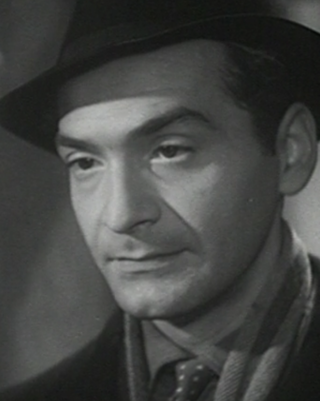
Andrea Checchi was a prolific Italian film actor.

Laura Solari was an Italian film actress.

Alarm Bells is a 1949 Italian drama film directed by Luigi Zampa and starring Gina Lollobrigida, Yvonne Sanson and Eduardo De Filippo.
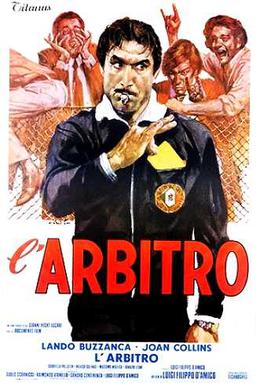
L'arbitro is a 1974 comedy film directed by Luigi Filippo D'Amico. The main character, Carmelo Lo Cascio, is inspired on the referee Concetto Lo Bello. The theme song, "Football Crazy", is sung by the football player Giorgio Chinaglia.

Il corpo della ragassa is a 1979 commedia sexy all'italiana film directed by Pasquale Festa Campanile. It is based on the 1969 novel with the same name by Gianni Brera.
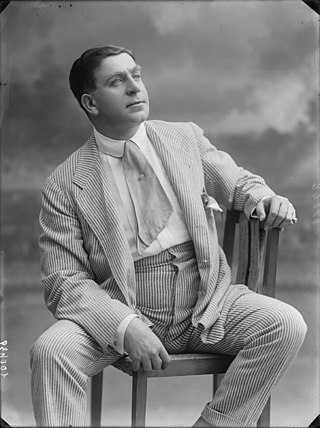
Armando Falconi (1871–1954) was an Italian stage and film actor who appeared in more than forty films during his career. He played the lead in the 1931 comedy The Charmer.

Roba da ricchi is a 1987 Italian anthology comedy film directed by Sergio Corbucci. It consists of three segments, all set in Monte Carlo.

Antonio Cifariello was an Italian actor and documentarist.

Paolo e Francesca, also known as Legend of Love, is a 1950 Italian historical melodrama film directed by Raffaello Matarazzo and starring Odile Versois and Armando Francioli. It is loosely based on real life events of Paolo Malatesta and Francesca da Polenta.
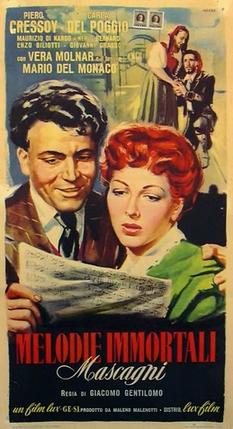
Immortal Melodies is a 1952 Italian musical-biographical melodrama film directed by Giacomo Gentilomo and starring Pierre Cressoy, Carla Del Poggio and Vera Molnar. It is based on real life events of classical composer Pietro Mascagni. The film's sets were designed by the art director Alberto Boccianti.
Una famiglia impossibile is a 1940 Italian "white-telephones" comedy film directed by Carlo Ludovico Bragaglia and starring Armando Falconi, Pina Renzi and María Mercader.

Rossini is a 1942 Italian musical drama film directed by Mario Bonnard and starring Nino Besozzi, Paola Barbara, Camillo Pilotto, Armando Falconi and Greta Gonda. It depicts adult life events of Italian composer Gioachino Rossini.
The Document is a 1939 Italian "white-telephones" comedy film directed by Mario Camerini and starring Ruggero Ruggeri, Armando Falconi and María Denis.
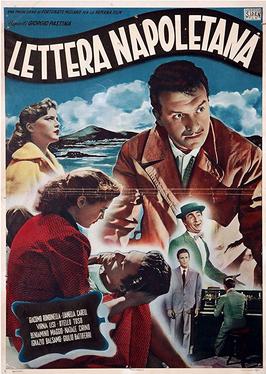
Letter from Naples is a 1954 Italian musical melodrama film directed by Giorgio Pastina and starring Giacomo Rondinella, Virna Lisi and Otello Toso.
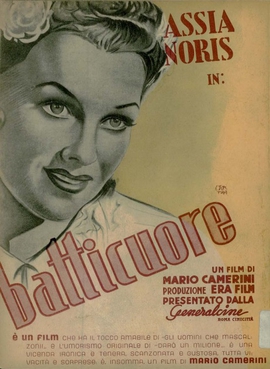
Heartbeat is a 1939 Italian "white-telephones" comedy film directed by Mario Camerini and starring Assia Noris, John Lodge and Rubi D'Alma. It remade in France as Beating Heart in 1940, and then again in Hollywood as a 1946 film of the same title starring Ginger Rogers and Basil Rathbone.

Rodolfo Gucci, also known by his stage name Maurizio D'Ancora, was an Italian actor and entrepreneur, who appeared in more than 40 films between 1929 and 1946. He was a member of the Gucci family. His only child, Maurizio Gucci, was named after his stage name.















